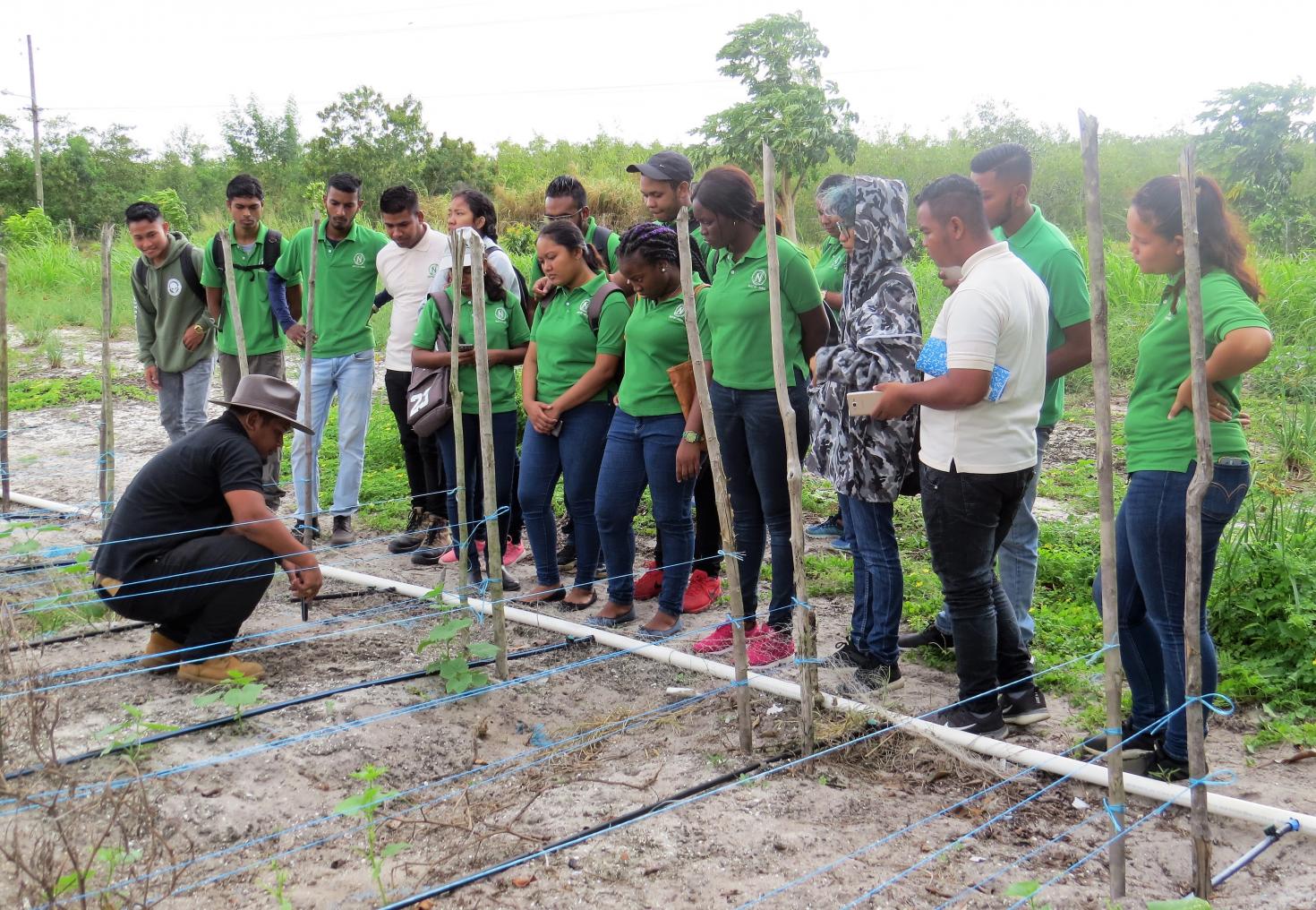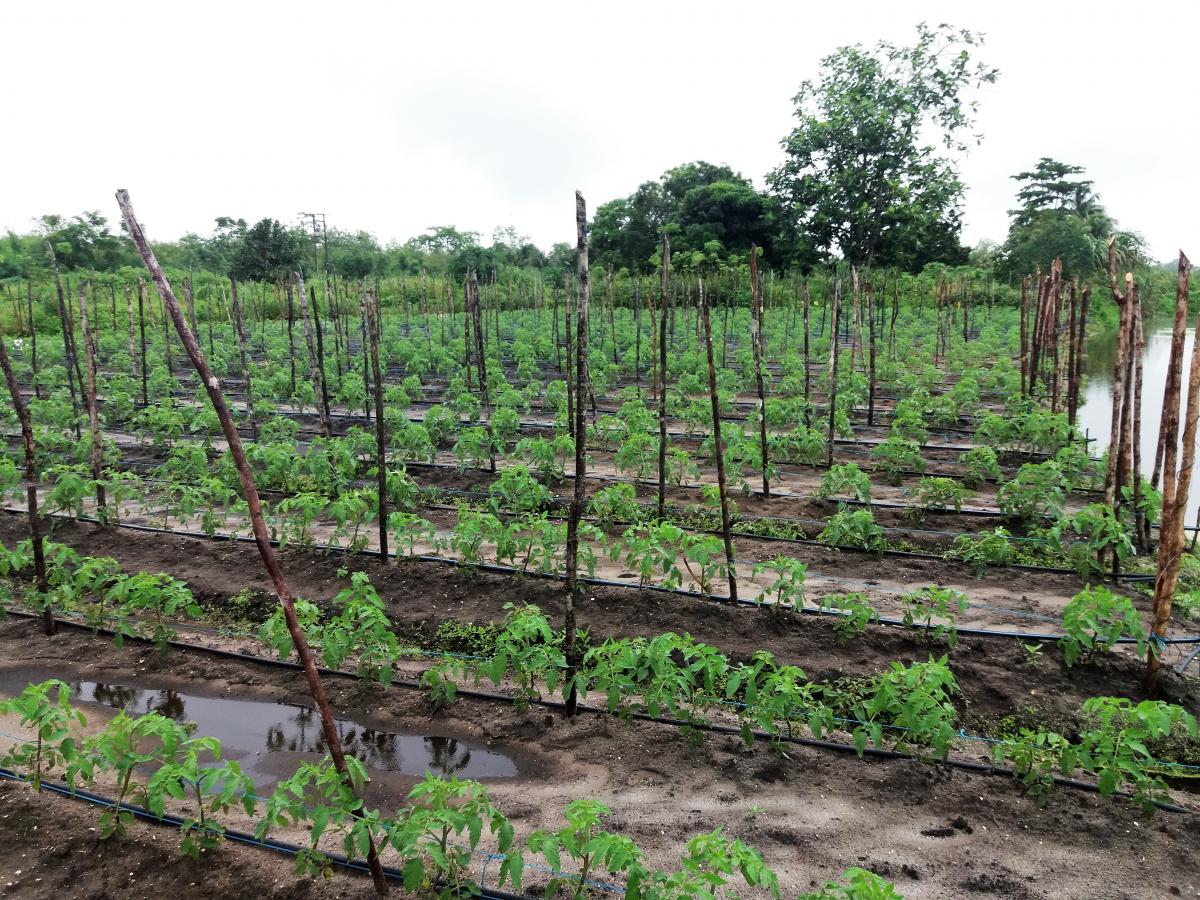Institute’s ongoing project seeks to build resilience in the country’s agricultural and rural sectors

Paramaribo, Suriname, September 20 (IICA). – The Inter-American Institute for Cooperation on Agriculture (IICA) held a workshop in Paramaribo to improve technical and institutional capacities for Agricultural Disaster Risk Management (ADRM) and sustainable agriculture in Suriname.
The workshop, entitled “Climate Variability Modeling Tools for Evidence- Based Decision Making in Agriculture Disaster Risk Management (ADRM)” was held on August 21st and led by Dimitris Herrera Hernández, Climate Variability Expert and Postdoctoral Associate at Cornell University, New York, United States.
It was part of the technical cooperation project Improving technical and institutional capacities for disaster and climate risk management and sustainable agriculture in Jamaica, Guyana, and Suriname.
The workshop was financed by the UN Food and Agriculture Organization (FAO). IICA is the executing agency for a component of the project in Suriname, in collaboration with the Ministry of Agriculture, Animal Husbandry and Fisheries (LVV), which focuses on building capacity in Agricultural Disaster Risks Management (ADRM).
The training was aimed at stakeholders in the public and private sector, international organizations working in related areas, educational institutions and Community-Based Organizations (CBOs). Thirty-three participants learnt modern digital modeling tools which can significantly enhance and facilitate decision making on the ADRM using timely and high-quality information.
Rabindre Parmessar, Minister of Agriculture, Animal Husbandry and Fisheries (LVV) in Suriname, said that his country recognized that it needed to adopt new crops which can adapt to the climatological changes. However, he cautioned that if countries lack the basic infrastructure, “we will not achieve our goals and we will not be able to mitigate successfully the negative impacts of climate change. High rainfall, poor drainage and poor water management are the main challenges for the agricultural sector in Suriname.”
The project has benefited 226 agricultural extension officers, students, youth, and farmers who have been exposed to training in good ADRM practices to ensure the sustainability of agricultural production in the country.
Curt Delice, IICA Representative in Suriname and Special Affairs Coordinator for the Caribbean Region, stressed the importance of adopting new technologies.

“I believe that right now, one of our greatest allies in meeting the challenge climate change poses to agriculture in the region, is in the use of innovation and technology”, he said. “IICA pledges to continue to work with Ministry of Agriculture, FAO, other international organizations, as well as other public, private sector agencies, and NGOs in Suriname to support green initiatives, to build resilience in the agriculture and rural sectors and support Suriname in its match towards a highly competitive and sustainable agricultural sector.”
“The purpose is to prepare the sector to be able to response to threats to the agricultural production such as drought, flooding and saltwater intrusion”, said Claus-Martin Eckelmann, FAO Regional Forestry Officer for the Caribbean.
“Knowing what to do in case of natural disaster will help the farmers as it reduces the response time, limits the damage and facilitates the recovery”, he added.
Más información
Curt Delice, IICA Representative in Suriname and Special Affairs Coordinator for the Caribbean Region











